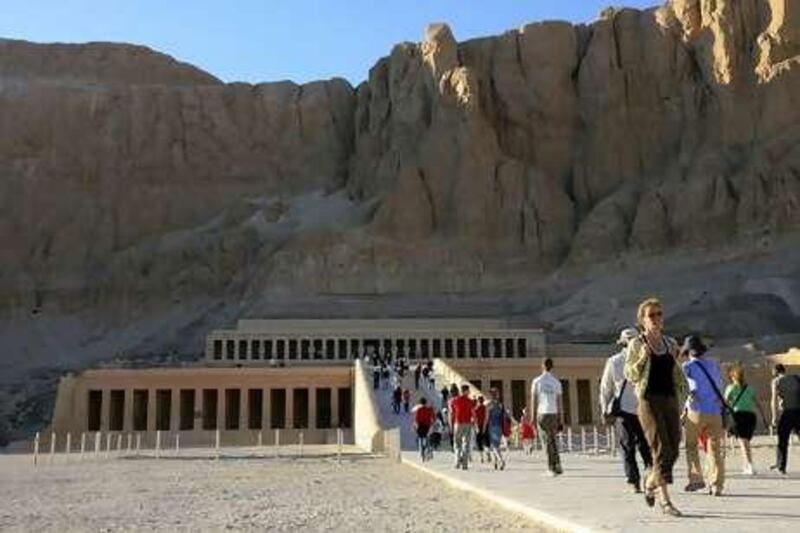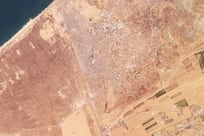Improving security since the Sharm el Sheikh attacks has led to a surge in Egypt's income from tourism by 32 per cent in the year to June, analysts said yesterday. "The strong growth in Egypt is a testimony to the resilience of this important tourist market which suffered greatly from the bombings in 2005," said Rob O'Hanlon, a partner at Deloitte Middle East, a consulting firm.
The attacks by an extremist group in Sharm el Sheikh, one of the major Red Sea resorts, killed 88 people, the majority of them Egyptians, making it the deadliest bombing in the country's history. A number of tourists were killed, including 11 Britons, six Italians, four Turks and one American. Having suffered a slowdown after the bombings, revenues have climbed steadily, reaching US$10.56 billion (Dh38.7bn) in the year to June from $8bn in the previous period. The number of arrivals was 12.25 million compared to 9.8 million in the same period last year.
Mary Nicola, an analyst at Standard Chartered Bank in Dubai, said Egypt had finally recovered from the attacks. "For the past couple of years, Egypt has managed to stay safe so travellers felt more confident in going there," she said. "That's why we are seeing a big increase in revenues this year." The improved security had also encouraged Gulf investors to develop tourism projects in the country. "We are seeing a lot of big Gulf development companies enter Egypt and they feel more confident now with its stability," said Ms Nicola.
Emaar Misr, the Egyptian subsidiary of the UAE's Emaar Properties, is building a $1.74bn tourist resort project located on Sidi Abdel Rahman (Alamein). The resort will include 3,000 hotel rooms, a marina, golf course, hospital, health care facilities and township development over 625 hectares. Despite the slowdown in Western economies, which has caused tourism to dip in some countries, Egypt continues to attract visitors. One of the biggest growth areas has been tourism from Russia, which now accounts for more travellers to Egypt than any other country. There were 1.5 million Russian tourists last year, overtaking those from Britain. "The combination of continued stability and the growth of important markets, such as Russia, is ensuring that Egypt moves steadily back to the levels of rates and occupancies that reflect the quality of the underlying products," said Mr O'Hanlon.
However, being a relatively cheap destination was also an advantage to Egypt. "The average hotel room in Egypt is still under $100 compared to $200 in Gulf countries, so even at a time of global recession people were still able to afford a holiday in Egypt," said Hala Choufany, the managing director of HVS, a hotel consultancy firm. Tourism accounted for 6.5 per cent of Egypt's gross domestic product last year, according to World Bank figures. The industry employs directly or indirectly about 13 per cent of Egypt's workforce. The government estimates that every extra million tourists create 200,000 new jobs.
abakr@thenational.ae
Egypt revels in tourism boom
Hordes of tourists are descending once again on the North African country, after shunning it for the past three years.

Editor's picks
More from the national





